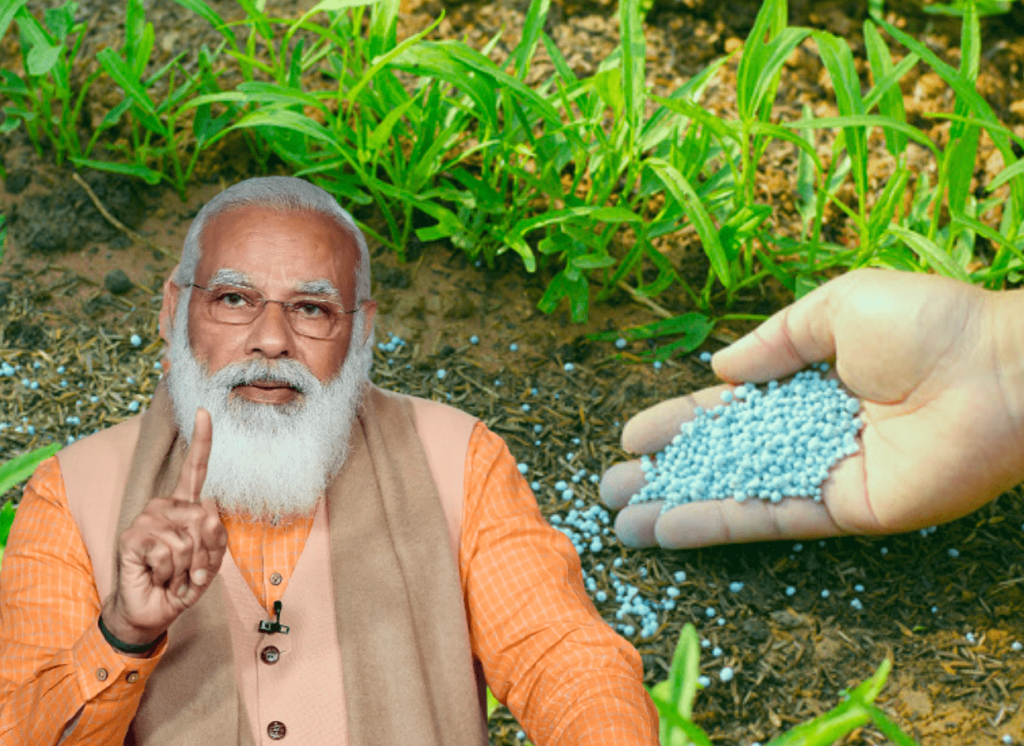In its quest to become a superpower of the Asian Century, India needs to be AATMANIRBHAR in every sense. The concept becomes more relevant when it’s about feeding 1.4 billion people. Realising this fact, Narendra Modi Government has started to step up the production of fertilisers in the country.
The government will shield farmers from high global prices of fertilisers
With the global price of fertilisers set to go up in the next decade, the Union government has decided to shield our farmers from its ramifications. Soon our farmers will not depend on imported fertilizers, instead, they will be using made-in-India fertilisers to provide nutrients to their crops.
The government has made big changes in the existing nutrient-based subsidy (NBS) policy to promote domestic production of phosphatic and potassic fertilisers. The decision was made in a high-level meeting which was chaired by Mansukh Mandaviya, Union Minister for Chemicals and Fertilizers.
An official statement read, “it was decided to continue support to the domestic industry for the production of P&K fertilisers and propose additional provisions in the present NBS Policy to promote domestic production of P&K fertilisers in the country. This decision will help in utilising the unutilised domestic production capacity of these fertilisers and promote ‘Atmanirbhar Bharat”
The government will ramp up domestic production capacity
Currently, India has a total of 30lakh tonnes of phosphate deposits. They are available in Rajasthan, the central part of peninsular India, Hirapur (Madhya Pradesh), Lalitpur (Uttar Pradesh), Mussoorie syncline (Uttarakhand), and Cuddapah basin (Andhra Pradesh). Shri Mandaviya has issued orders to commercially ramp up production in these facilities.
NBS policy in a nutshell
NBS policy is a guiding force behind the availability of fertilisers in India. Contrary to popular belief, it does not fix the prices of fertilisers sold in India. The price of fertilisers is left to market forces. Simply put, based on calculations from both demand and supply, fertilisers companies fix the prices on which our farmers buy from them.
However, since most companies run on the profit motive, the government intervenes during the final steps of fixing prices. The government’s monitoring intervention makes sure that the price of fertilisers does not go against farmers’ interests. Moreover, after the prices are finalised by companies, government fulfills demand-side obligations through subsidies. By providing a fixed amount of financial support to farmers, the government makes sure that no farmer misses out on buying nutrients for his/her farm.
Explorations to be expedited
Currently, India imports nearly 90 percent of its fertilisers’ needs. India needs heavy investment to augment its domestic production capacity. This is the reason why the government will not just ramp up the production in the above-mentioned facilities, but it will also expedite explorations in potential potassic resources in Rajasthan’s Satipura, Bharusari, and Lakhasar. More explorations will take place in Uttar Pradesh, Madhya Pradesh, Gujarat, Andhra Pradesh, and Karnataka.
Becoming a Food-basket is a precursor to becoming a superpower
In spite of having an international perception of an agriculture-based economy, agriculture’s contribution to Gross Domestic Product has declined over decades. This is a good sign as it means that India has enough to feed its population resulting in the flourishing of manufacturing and service sectors. Recently, the Government had also introduced liberalised farm laws which could skyrocket farmers’ incomes, but unfortunately, it had to be taken down due to a protest by a small minority of well-organised people.
Read more: Modi govt hints that farm laws could be back
With the production of fertilisers’ in our own country, India will be able to increase our agri-exports as well. Ramping up fertilisers’ production is a big step in this direction.
